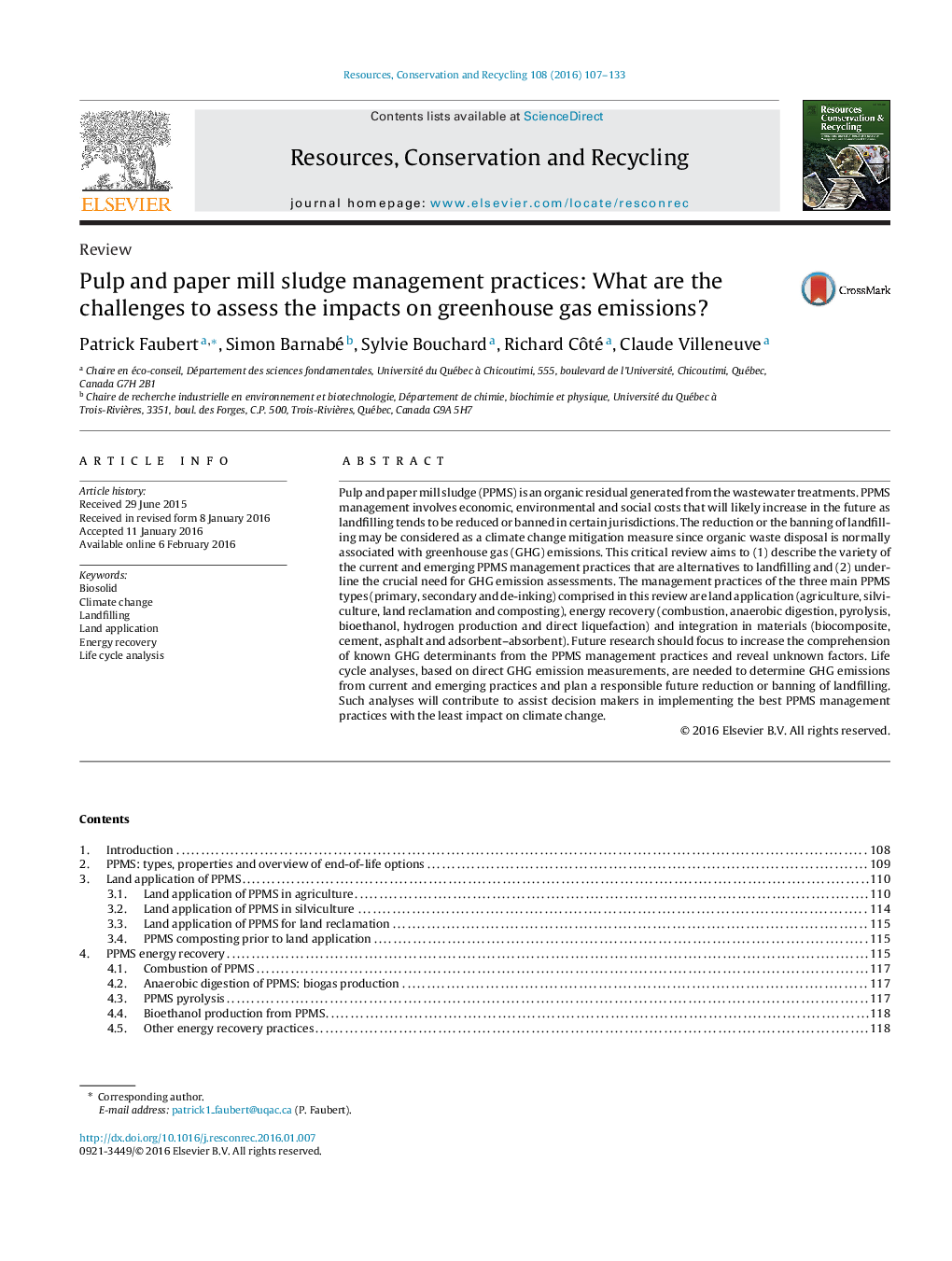| Article ID | Journal | Published Year | Pages | File Type |
|---|---|---|---|---|
| 1062719 | Resources, Conservation and Recycling | 2016 | 27 Pages |
•Technological innovations on the pulp and paper mill sludge management are needed.•Greenhouse gas (GHG) emissions from the management practices are unknown.•GHG emissions from landfilling need to be assessed, based on measurements.•Life cycle analysis: a key to estimate GHG emissions from all management scenarios.•Responsible changes of management practices could lower the impacts on climate change.
Pulp and paper mill sludge (PPMS) is an organic residual generated from the wastewater treatments. PPMS management involves economic, environmental and social costs that will likely increase in the future as landfilling tends to be reduced or banned in certain jurisdictions. The reduction or the banning of landfilling may be considered as a climate change mitigation measure since organic waste disposal is normally associated with greenhouse gas (GHG) emissions. This critical review aims to (1) describe the variety of the current and emerging PPMS management practices that are alternatives to landfilling and (2) underline the crucial need for GHG emission assessments. The management practices of the three main PPMS types (primary, secondary and de-inking) comprised in this review are land application (agriculture, silviculture, land reclamation and composting), energy recovery (combustion, anaerobic digestion, pyrolysis, bioethanol, hydrogen production and direct liquefaction) and integration in materials (biocomposite, cement, asphalt and adsorbent–absorbent). Future research should focus to increase the comprehension of known GHG determinants from the PPMS management practices and reveal unknown factors. Life cycle analyses, based on direct GHG emission measurements, are needed to determine GHG emissions from current and emerging practices and plan a responsible future reduction or banning of landfilling. Such analyses will contribute to assist decision makers in implementing the best PPMS management practices with the least impact on climate change.
Graphical abstractFigure optionsDownload full-size imageDownload as PowerPoint slide
